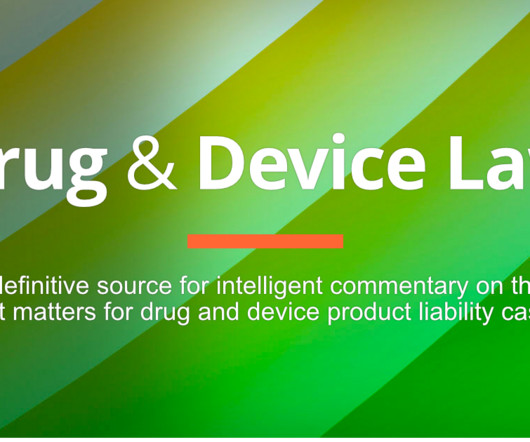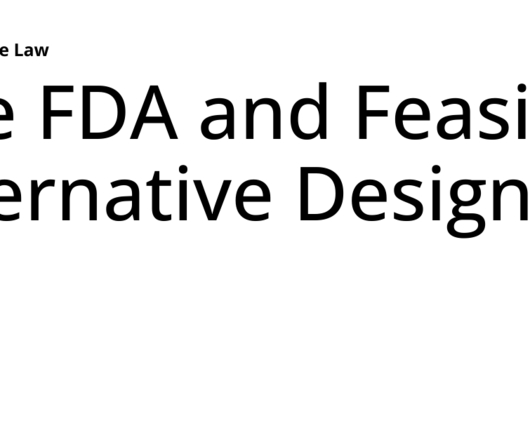Analysis Life Sciences Thank You The cost of artificially short expiration dates: Worsened shortages, higher costs and more waste
Agency IQ
JANUARY 26, 2024
Samples retained for testing should be kept under similar storage conditions and within the same container-closure system in which the drug is marketed. Such a situation is commonplace in the clinical trial realm, in which investigational drug products which are not already FDA approved are administered to patients.












Let's personalize your content